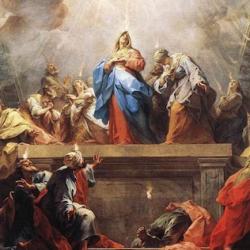To secular analysts, “Progressive Pentecostals” seem naively apolitical. In their study of Global Pentecostalism, Donald Miller and Tetsunao Yamamori agree that the “integral” or “holistic” Pentecostals that they study are not social gospellers or liberation theologians. They don’t aim to “reform social structures or challenge government policies.” They are content to “build from the ground up an alternative social reality.”
In fact, “Marxist commentators will see this as hopelessly naive because Progressive Pentecostals in most cases actually embrace capitalism and attempt to work within the system.” Miller and Yamamori argues, on the contrary, that “Pentecostals are actually doing something fairly subversive. They are teaching their members that they are made in the image of God; that all people have dignity and are equal in God’s sight; and that therefore they have rights—whether they are poor, women, or children.” Pentecostals are responsible for “some of the most innovative social programs in the world.”
In Brazil, for example, Renascer em Cristo, a fast-growing Neo- Pentecostal movement, has a wide range of social ministries, which cooperate with courts and government social services: “The courts send children to Renascer, which provides them with housing, medical and dental care, psychological counseling, education, and spiritual direction. Renascer also has a home for teenagers, providing similar services. Trained teams go to the jails, providing gynecological and breast examinations for incarcerated women and medical and psychological assistance for men. Church members work with prisoners and their families to prepare them for reentering society and in the favelas (slums) with children and their families. Other programs minister to drug addicts and handicapped people.”
More subtly, “Pentecostal churches often function like surrogate extended families. Typically, large churches have cell groups where members are surrounded by people who care for them and their families. Within these churches, it is also possible to have a social role, an identity, as someone who is valued and needed.”
They also argue that the Pentecostal emphasis on human dignity might have potent, if unintended, political effects, encouraging democratization: “Everyone is made in the image of God, and all people have equal value in God’s sight, according to Pentecostals. At its root, Pentecostalism is a religion of the people: everyone has the right to interpret scripture themselves; they are not dependent on a priestly class.”













